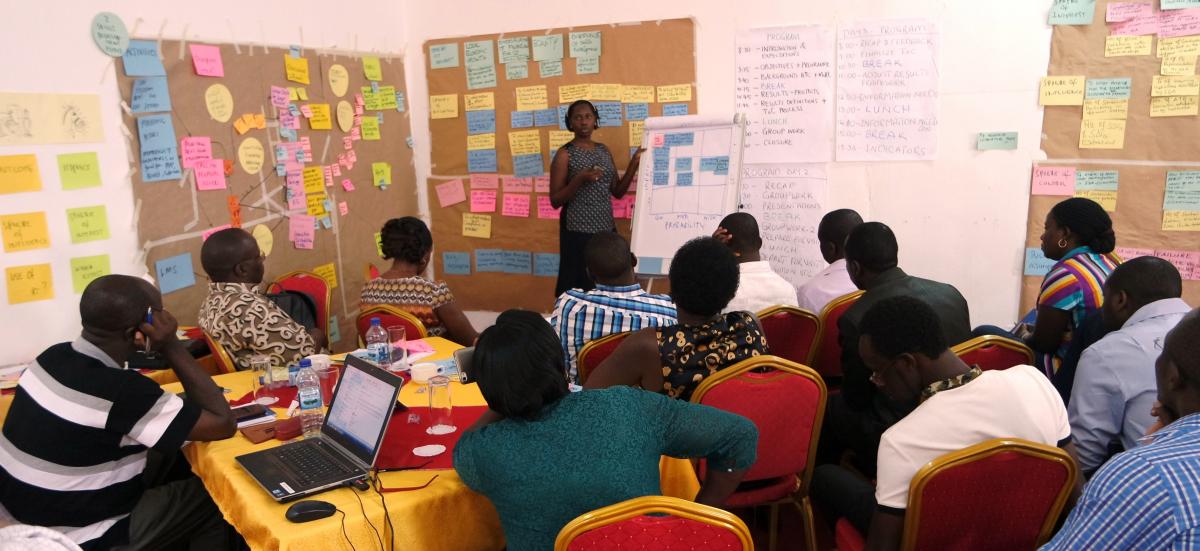Striving for better results: Support to Skilling Uganda’s Workshop on theory of change
BTC Uganda and the Ministry
of Education and Sports are jointly implementing a 5-year project (2015-2020)
to Support the implementation of the Skilling Uganda (SSU) Strategy. SSU tries to advance
the existing “Skilling Uganda” strategic plan (2012-2021) through a multilevel
focus where it promotes systemic change at the policy level, while stimulating
bottom-up partnerships between the private sector and training institutions and
ensuring equitable access to training for vulnerable groups such as girls and
refugees communities. This is done
in the three target areas of Albertine, Karamoja and West-Nile. By improving the quality of
skills development and making it more responsive to labor market needs,
the project aims to make the SU paradigm shift a reality.
Shifting the paradigm
In order to successfully enhance this change, the SSU
project must formulate the change process and map everything that may influence
it. This is why BTC Uganda organized a workshop in Hoima (11th-14th
October) with public and private officials of all institutional levels and
regions. Over 35 people participated in constructing a “theory of change”, through which the SSU project tries to map the
change process in a
logical order of events that are expected to lead to the change in the long
term, all while taking into account assumptions that may influence the
process. As
one of the participants puts it: “A theory
of change tells the story behind an
intervention and provides clear pathways to monitor change.”
Mapping the change process
For four days, the workshops’ participants
sat together in groups and mapped the foreseen inputs, outputs, outcomes and
impact of each specific project objective. Colorful cards were used to
visualize these result-chains. The participants discussed assumptions that may
influence the change process, through questions such as “Will better educated
students consequently lead to higher employment rates”? or “Will parents let their
daughters follow these trainings?” The participants then added these
assumptions on the colorful card chains and analyzed the risks they pose to a
successful project implementation.
By the end of the workshop the change process
was broken down into steps, each with its own measurable indicator of change. Through this result-based monitoring, where
the focus lies not only on the activities and outputs but also on the outcomes and
impact, the SSU project attempts to enhance the paradigm shift towards relevant
and equitable skills development in Uganda. As co-manager Thierry Foubert puts it: “During
the workshop the targets and necessary change indicators of three area-specific
projects were discussed, going from the employment opportunities of the oil and
gas sector in Albertine, to the vulnerability of the refugee communities in
West-Nile and the specific needs of Karamoja.”
Dernières actualité de ce projet
Pas d'actualité

